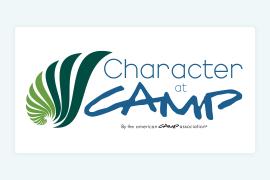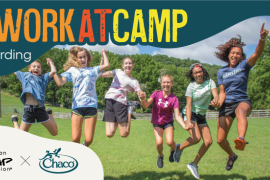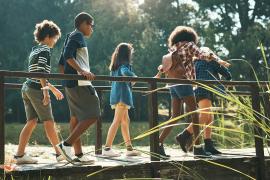Young people are longing for urgent and effective solutions to the environmental crisis. What better place to model and mentor sustainable solutions than camp, where thousands of children around the world experience the world in new ways every year? For many, the vision of a “sustainable camp” may seem out of reach. But while improving sustainability may be challenging, anything worthwhile is going to require intentionality and investment.
It’s clear that the camp industry stands to gain from the educational, economic, and environmental benefits of sustainability. So why aren’t more camps doing more to make it more of a priority? What are the barriers holding them back? What factors would motivate camps to take green action? What challenges and successes have other camps experienced? What resources are out there to teach camp staff the skills and knowledge to start or build upon your sustainability efforts?
Asking questions like these helps grow the conversation around the role the camp community can play in modeling sustainability for future generations. Answers to these questions might also help your camp save money while engaging and empowering your campers and reduce the environmental footprint of our industry.
In order to support the growth of this conversation, the American Camp Association (ACA) has partnered with a faculty-led student research team at North Carolina State University to conduct a sustainable “needs assessment” for camps across the United States and beyond. This research is designed to address two primary objectives.
- Document sustainable practices camps are already engaged in across five different domains (education and communication, natural resources and habitat, purchasing and procurement, waste management, and energy and water consumption) and identify aspects of sustainability that could be improved or expanded
- Characterize motivations and barriers camps face in their efforts to become more sustainable and identify resources needed to help camps achieve this goal
The environmental science students involved in this research have a wide range of interests and backgrounds, including renewable resources, toxicology, marine science, urban ecology, sustainable materials, and environmental law and policy. Their faculty mentors, Lincoln Larson, PhD, at NCSU and Barry Garst, PhD, at Clemson, have both worked in the outdoor recreation research world for years and are guiding the students as they develop, administer, and analyze the survey.
The data collected from this research will be shared with a large network of funders to advocate for investment in sustainable initiatives across the camp community. You can play a huge role in supporting the advancement of the sustainable camps movement by inviting one representative from your camp to invest 10–15 minutes to participate in this important survey.
Show your support for sustainable development in the camp community by sharing this opportunity with other camp professionals on social media @gogreencamps #gogreencamps
Have questions, comments, concerns, or appreciations to share around this topic? Visit the newly launched ACA Connect Sustainability Listserv to join the conversation.




